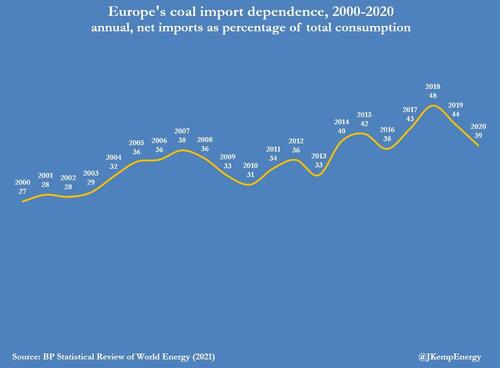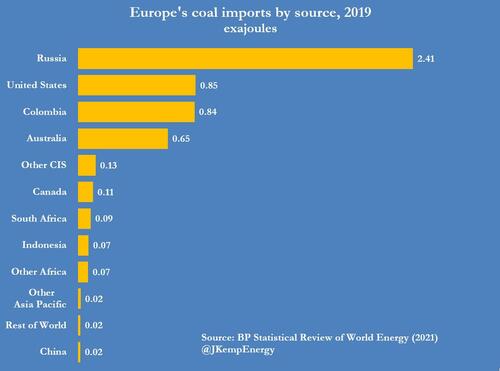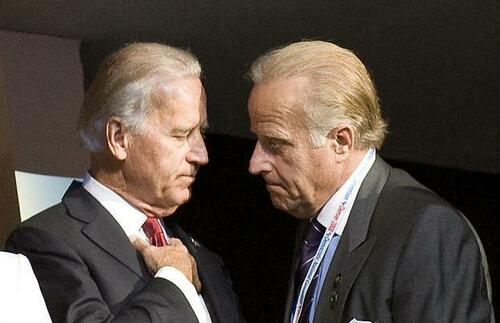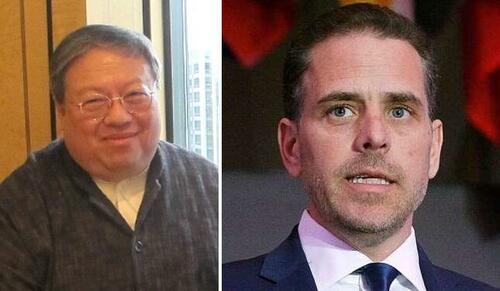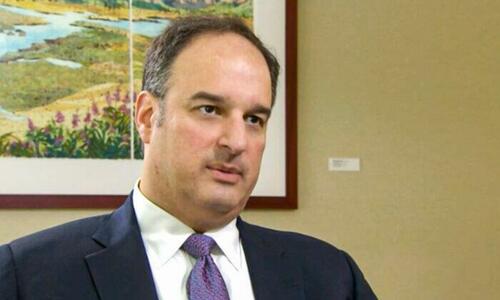EU Embargo On Russian Coal Would Raise Prices Worldwide: Kemp
By John Kemp, Senior energy market analyst at Reuters
Europe’s coal futures prices have surged to a record high in real terms over the last month as traders anticipate an EU embargo on Russian exports will disrupt supplies globally.
EU policymakers may decide higher electricity and gas bills for households and industry are the necessary price to respond to Russia’s invasion of Ukraine. But EU decisions will have significant spill-overs for other coal-importing countries in Asia, Africa and Latin America, likely raising coal, gas and electricity prices for all consumers.
Europe’s coal production has fallen faster than consumption in recent years – leaving the region increasingly reliant on imports, particularly from Russia, to cover the shortfall.
Europe now depends on imports to meet more than 40% of its coal consumption, up from less than 30% at the start of the century, according to data from BP (“Statistical review of world energy”, 2021).
Russia supplied roughly 50% of coal imports in both 2019 and 2020, accounting for more than 20% of the region’s total consumption.
Coal exports from Russia to Europe were the world’s third-largest bilateral flow in 2019, before the pandemic, and the fifth-largest in 2020, when the outbreak was at its height.
Russia’s exports to Europe accounted for 6-7% of inter-regional coal trade in both years. If Russia’s exports to Japan and South Korea, the principal U.S. allies in Asia, are included, the share rises to 10-11%.
Assuming the EU goes ahead with an embargo on coal from Russia, it will have to increase imports from Colombia, South Africa, Indonesia and Australia significantly.
That would force other major coal importers including China, Japan, India and South Korea to switch to Russian supplies instead. In practice, total global production is likely to fall, with Russia and perhaps other exporters struggling to switch destinations owing to logistics constraints, driving up coal prices for all consumers.
Global coal supplies have been tight over the last year with shortages in China and India affecting electricity production, so the loss of Russian or other production will not be easily absorbed without an increase in prices.
Even if it can be done, re-routing flows this way will leave all countries importing from sources much further away, increasing tonne-miles travelled and boosting freight costs.
Coal is a bulky commodity, ensuring freight costs already account for a large share of the price to the final consumer, which is likely to rise significantly.
Most coal is burned for electricity generation where it competes with gas-fired units to supply both baseload and peak power. Gas prices in Europe and Asia are already trading at exceptionally high levels as traders anticipate possible disruption to Russia’s pipeline supplies to Europe.
High gas prices are signalling the need to maximise coal-fired generation as much as possible this summer to build up gas inventories ahead of next winter.
Higher gas and coal prices are feeding off each other and jointly responding to the threat to Russian energy supplies from the conflict in Ukraine and the sanctions imposed in response.
Front-month futures prices for coal delivered to Rotterdam in Northwest Europe are already trading at 266 euros per tonne compared with a previous peak adjusted for inflation of 174 euros in June 2008. Record coal prices will ensure gas prices remain high to accumulate stocks and keep electricity prices at record levels.
Like crude petroleum, coal is only a semi-fungible commodity – coal from different fields and countries varies significantly in terms of energy content, volatile organic compounds, ash and other impurities.
Most power generators are designed to work efficiently with specific grades of coal. Switching to imperfect substitutes will increase fuel costs for all generators, raising electricity prices.
The EU’s proposed coal embargo will force a wholesale redirection of global flows, increase costs for electricity generators and ultimately push up power and gas bills for businesses and households, not just in Europe but across Asia, Africa and Latin America.
Tyler Durden
Thu, 04/07/2022 – 14:40
via ZeroHedge News https://ift.tt/R2lofsF Tyler Durden

